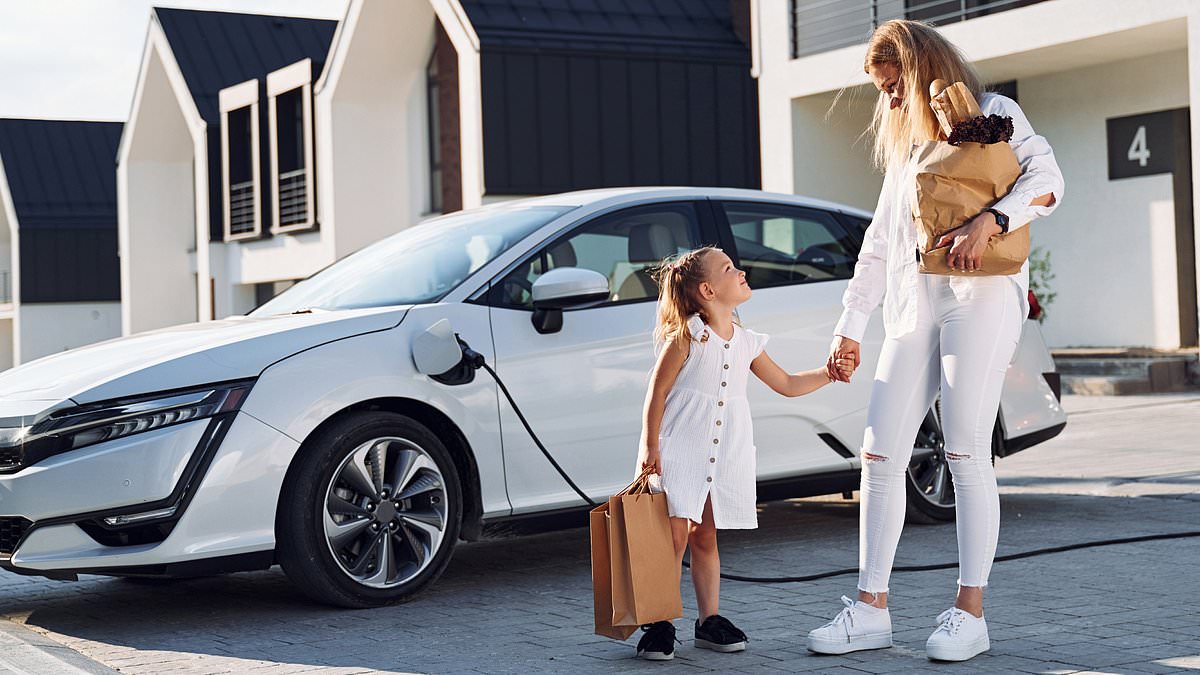Britons still ‘not ready’ to switch to EVs because the right conditions haven’t been met and ‘significant barriers’ remain
By Editor,Freda Lewis-Stempel
Copyright dailymail

Britain’s drivers are still ‘not ready’ to make the switch to electric cars, a groundbreaking new report has highlighted.
The AA today launched its first quarterly ‘UK EV Readiness Index’, which assesses the factors influencing motorists’ stance on transitioning to battery-powered cars.
And the first set of results suggest UK drivers are far from prepared for mass adoption with the initial readiness rating standing at a lowly 47.5 out of 100.
The AA says that the score shows that while EVs are a viable and attractive option for some there are ‘significant barriers’ for the majority of licence holders in 2025.
Drawing on proprietary AA data and expert sources, the index tracked eight critical factors to give a comprehensive snapshot of how practical and appealing EV ownership is for UK drivers today.
These are: cost of new EV, cost of used EV, cost of EV insurance, cost of home charging and home charger, cost of public charging, access to charging EVs, running out of charge and roadside EV repair rates.
Edmund King OBE, AA president said: ‘Our index is an independent barometer of the issues that are either holding drivers back or propelling drivers to go electric. It is neither pro nor anti EV.’
The AA polled 14,915 drivers on their thoughts on the Electric Car Grant (ECG), which was introduced in July to reduce the upfront cost of new eligible EVs by between £1,500 and £3,750.
Motorists were asked if they the scheme would likely increase their appetite to buy an EV as their next model.
Almost two fifths (38 per cent) said that even with the discounts applied new EVs are too pricey.
A quarter resoundingly stated they will ‘never buy an EV’, while a fifth told the motoring group that they will only buy a second-hand motor, which makes the ECG redundant to them.
Just five per cent said the grant has increased the likelihood of them making the switch to a battery-powered model.
And only one per cent of the panel admitted they are already buying an EV and want to use the grant.
Some 47 out of the 14,915 surveyed said they were already in the process of buying a new EV because of the grant.
In addition, six per cent are considering using the ECG.
Younger drivers are seeing the appeal of the grants more than older motorists: some 12 per cent of 18-to-24-year-olds said they’ll be using the grant, while 10 per cent of 35-to-44-year-olds will be seeking the Government-backed discount scheme.
The AA points to this as being significant as private sales of all kinds of new cars (petrol, diesel, EV) were approximately 10 per cent in 2024, with the other 90 per cent buying used cars.
The AA also presented 8,654 respondents with a series of theoretical alternative EV-buying incentives and if these would increase the likelihood of them considering transitioning to battery power.
The schemes given the most support included grants for used EVs, removing VAT on electric vehicle prices, and an interest free loans for purchasing second-hand electric models.
There was also strong support for improved EV charging infrastructure, free or heavily subsidised homecharger installations, removal of VAT on charging costs, and changes to the car tax system, including removing the controversial ‘luxury car tax’.
‘Guaranteeing battery life/range will be as good when 10 years old as when new’ was another suggestion.
Edmund King commented: ‘Drivers tell us they’re excited about going electric and they love the tech, but they’re also confused and cautious.
‘Our index shows that upfront costs and charging access are still major concerns. Our polling also suggests battery health and resale values are still issues for some.’
The AA president added that drivers are ‘unsure how far and fast they should move to an EV’ and that some are waiting for ‘future technological developments to enhance better range and in car systems’ as well as less expensive products, targeted incentives and better information.
When this has been achieved, the AA says it is ‘confident’ that the readiness rating will increase.



